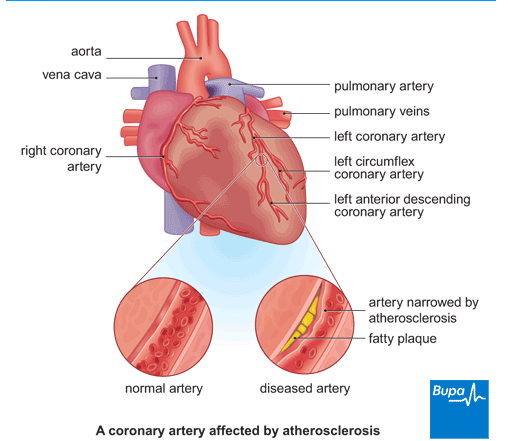
For many countries around the world, including the UK, the US and Australia, 10 June 2013 marks the start of Men’s Health Week.The aim of this week is to increase awareness of preventable health problems, and encourage early detection and treatment of disease among men and boys.

And such awareness weeks are needed. Time after time, a survey or statistic highlights that men are falling short when it comes to seeking medical advice when they need to. In fact, one survey found that around one in four men wait ‘as long as possible’ before seeking advice when they are ill, in pain or concerned about their health.
When you hear someone mention men’s health, you will most likely think ofprostate cancer testicular canceror erectile dysfunction. But here, we’re going to focus on matters of the heart, specifically heart disease and how to keep your on top of your ticker’s health.Heart problems are not the end of the world, but ignoring them often is.
Cardiovascular disease
To understand about your heart health and conditions that can affect your heart, it’s important to understand the term, cardiovascular disease (CVD). CVD means all the diseases of the heart and circulation, which includes coronary heart disease (angina and heart attack) and stroke.
Coronary heart disease and strokeare often caused by the same problem – atherosclerosis.You are more at risk ofatherosclerosis if you eat a poor diet,you smoke or have a family history of heart disease.This is when your arteries become narrowed by a gradual build-up of fatty material called atheroma on their walls. Over time, your arteries may become so narrow that your body will struggle to deliver enough oxygen-rich blood to your heart. This often causes angina (chest pain).
Sometimes, a piece of the atheroma that has built up on your artery walls can break away and cause a blood clot to form. If this clot blocks your coronary artery, it can cut off your blood supply to your heart, causing a heart attack. If the blood clot blocks an artery to your brain, this can cause a stroke.
Heart disease and men – the stats
- An estimated 17 million people die of CVDs, particularly heart attacks and strokes, every year.
- A man’s risk of heart disease begins to rise greatly from around the age of 45.
- About 8.5 percent of all white men, 7.9 percent of black men and 6.3 percent of MexicanAmerican men have coronary heart disease.
- Between 70 and 89 percent of sudden cardiac events occur in men.
- Even if you have no symptoms, you may still be at risk of heart disease. Half of men who die suddenly of coronary heart disease have no previous symptoms.
Lowering your risk
Whatever your age, you can make changes now to keep your heart healthy and reduce your risk of developing heart disease.
- Your risk of heart disease greatly increases if you smoke, so don’t smoke.If you do smoke, giving up will help lower your risk of developing heart disease. Speak to your doctor for advice and support about quitting.
- Get your blood pressure checked regularly. If you have high blood pressure, take steps to lower it and keep it under control, such as eating a healthy diet and keeping physically active. You doctor will be able to give you advice about controlling your blood pressure if it’s high.
- Maintain a healthy weight.Being overweight or obese can increase your risk of developing heart disease.To determine whether your weight is in a healthy range, your doctor or a nurse often calculatesyour body mass index (BMI).
- Treat your heart to a heart-healthy diet. Eat plenty of fruit and vegetables, and fibre-rich foods. Try to keep foods high in saturated fat, cholesterol and salt to a minimum.
- Limit your alcohol intake. Although the odd drink doesn’t hurt, try not to drink too much alcohol, as this causes high blood pressure.
- Get active and keep active. Make sure you exercise regularly – this doesn’t necessarily mean becoming a slave to the gym. Brisk walking, cycling to work, gardening and housework all count.
- If you have diabetes, you are at an increased risk of heart disease. Therefore, it’s even more important to make changes to lead a healthier lifestyle. Your doctor will be about to help you control your diabetes, with the right medication and lifestyle advice.
Further information
British Heart Foundation
www.bhf.org.uk

Leave a Reply